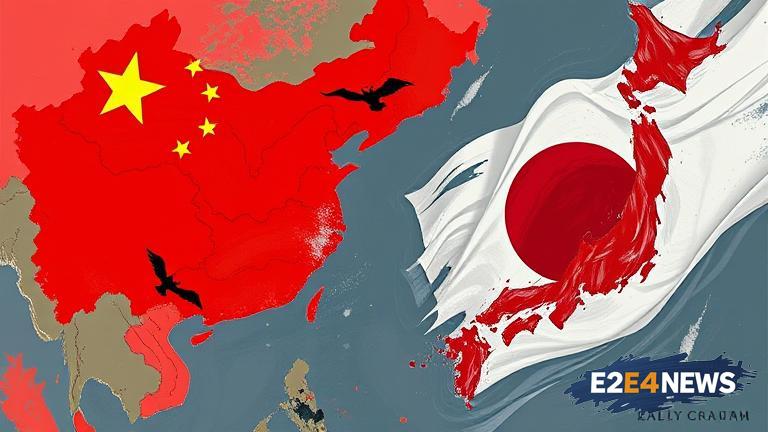China has made significant moves against Japan in recent weeks, sparking concerns of a new era of tensions between the two nations. The Chinese government has been increasing its military presence in the East China Sea, with a particular focus on the disputed Senkaku Islands. This has led to a significant increase in tensions between China and Japan, with both nations engaging in a war of words over the issue. The Senkaku Islands have been a point of contention between China and Japan for many years, with both nations claiming sovereignty over the territory. The islands are strategically located and are believed to be rich in natural resources, including oil and gas. China’s increased military presence in the region has been seen as a provocative move by Japan, which has responded by increasing its own military presence in the area. The Japanese government has also been working to strengthen its alliances with other nations in the region, including the United States and South Korea. The United States has been a key player in the region, with a significant military presence in Japan and a commitment to defending the nation in the event of an attack. The Chinese government has been critical of the United States’ involvement in the region, seeing it as an attempt to contain China’s growing power. Despite the tensions, both China and Japan have been working to strengthen their economic ties, with trade between the two nations reaching record levels in recent years. However, the current tensions have raised concerns about the future of economic relations between the two nations. The Chinese government has also been working to strengthen its ties with other nations in the region, including Russia and North Korea. This has led to concerns about the potential for a new era of great power rivalry in the region, with China, Japan, and the United States all vying for influence. The situation has been further complicated by the ongoing COVID-19 pandemic, which has had a significant impact on the global economy and has raised concerns about the potential for future conflicts. The Chinese government has been accused of using the pandemic as a pretext for increasing its military presence in the region, although this has been denied by Chinese officials. The Japanese government has also been working to strengthen its defenses against the pandemic, with a particular focus on protecting its economy and citizens. The situation in the East China Sea has significant implications for regional stability and global trade, with the potential for conflict between China and Japan having far-reaching consequences. The international community has been watching the situation closely, with many nations calling for calm and restraint. The United Nations has also been involved in efforts to resolve the dispute, with a particular focus on finding a peaceful solution to the conflict. Despite the challenges, there are still opportunities for cooperation between China and Japan, with both nations having a significant interest in maintaining stability in the region. The Chinese government has been working to strengthen its ties with other nations in the region, including ASEAN member states, in an effort to promote regional cooperation and stability. The Japanese government has also been working to strengthen its ties with other nations in the region, including India and Australia, in an effort to promote regional cooperation and stability. The situation in the East China Sea is complex and multifaceted, with a range of different factors at play. However, one thing is clear: the current tensions between China and Japan have significant implications for regional stability and global trade, and will require careful management and diplomacy to resolve.
